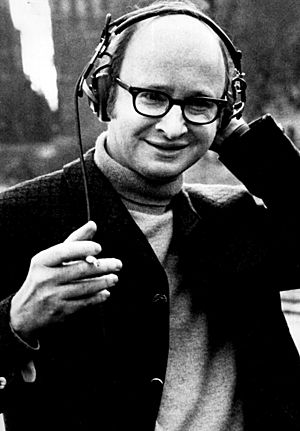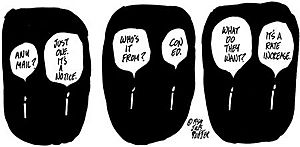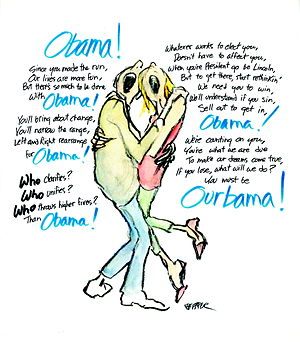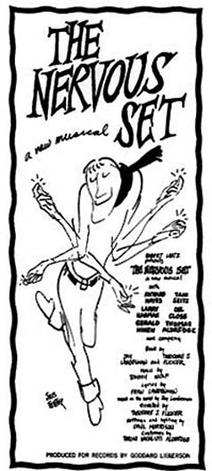Jules Feiffer facts for kids
Quick facts for kids Jules Feiffer |
|
|---|---|
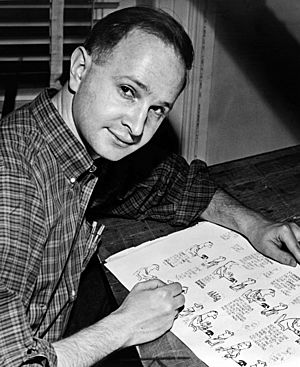
Feiffer in 1958
|
|
| Born | January 26, 1929 New York City, U.S. |
| Died | January 17, 2025 (aged 95) Richfield Springs, New York, U.S. |
| Area(s) |
|
|
Notable works
|
|
| Awards |
|
| Spouse(s) |
|
| Children | 3, including Halley |
Jules Ralph Feiffer (born January 26, 1929 – died January 17, 2025) was a famous American cartoonist and writer. Many people considered him one of the most widely read satirists in the United States. He won the Pulitzer Prize in 1986 for his political cartoons. In 2004, he was added to the Comic Book Hall of Fame.
Feiffer wrote an animated short film called Munro. This film won an Academy Award for Best Animated Short Film in 1961. The Library of Congress recognized Feiffer's amazing work. He was a cartoonist, playwright, screenwriter, and author for both adults and children. He also illustrated books and taught art.
When Feiffer was 17, in the mid-1940s, he became an assistant to cartoonist Will Eisner. He helped Eisner write and draw comic strips like The Spirit. In 1956, Feiffer started working at The Village Voice newspaper. He created a weekly comic strip called Feiffer until 1997.
His cartoons became popular across the country in 1959. They appeared in many publications, including the Los Angeles Times and The New Yorker. In 1997, he created the first comic strip for the opinion page of The New York Times. This strip ran monthly until 2000.
Feiffer wrote more than 35 books, plays, and screenplays. His first collection of funny cartoons, Sick, Sick, Sick, was published in 1958. His first novel, Harry, the Rat with..., came out in 1963. In 1965, Feiffer wrote The Great Comic Book Heroes. This book was the first history of comic book superheroes from the 1930s and 1940s.
In 1979, he created his first graphic novel, Tantrum. By 1993, Feiffer began writing and illustrating books for young readers. Several of these books won awards. Feiffer also wrote for theater and film starting in 1961. His plays included Little Murders (1967) and Knock Knock (1976). He wrote the screenplay for Popeye (1980).
Contents
Early Life and Drawing Talent
Feiffer was born in The Bronx, New York City, on January 26, 1929. His parents were David and Rhoda Feiffer. He grew up in a Jewish family with two sisters. His father, David, was often unemployed during the Great Depression. His mother, Rhoda, was a fashion designer. She sold her watercolor drawings of designs to clothing companies.
Feiffer started drawing when he was only three years old. He said his mother always encouraged him to draw. When he was 13, his mother gave him a drawing table. She also enrolled him in the Art Students League of New York to study how the human body is put together. He finished James Monroe High School in 1947.
Feiffer won an art contest medal for a crayon drawing of the radio Western hero Tom Mix. He loved cartoons from a young age. He felt that combining his drawing and writing skills would help him succeed. Feiffer enjoyed how comic strips told stories. He liked that they created their own unique worlds.
Feiffer's Career as a Cartoonist
Working with Will Eisner (1946–1956)
After high school, at age 16, Feiffer really wanted a job. He went to the office of Will Eisner, one of his favorite cartoonists. Eisner saw Feiffer's determination. He gave Feiffer a low-paying job, even though he wasn't very impressed with Feiffer's drawing skills at first.
Eisner later realized Feiffer was a great writer. He gave Feiffer his own page in The Spirit comic section. Feiffer started writing the dialogue for Eisner's stories. Eventually, he wrote entire stories on his own. They worked well together, sharing ideas and making changes. Feiffer also studied at the Pratt Institute for a year to improve his art. Eisner valued Feiffer's ability to make characters sound real.
His Work at The Village Voice (1956–1997)
After working with Eisner for almost ten years, Feiffer decided to create his own comic strips. In 1956, he became a cartoonist for The Village Voice newspaper. He produced a weekly comic strip there until 1997. His strips were first called Sick Sick Sick, then Feiffer's Fables, and finally just Feiffer.
After a year, Feiffer collected his cartoons into a best-selling book, Sick Sick Sick: A Guide to Non-Confident Living (1958). This book looked at common social and political worries. Its success led him to contribute to the London Observer newspaper. Director Stanley Kubrick was a fan of Feiffer's work. He asked Feiffer to write a screenplay for Sick, Sick, Sick, but the film was never made.
By April 1959, Feiffer comics were shared nationally. They appeared in newspapers like The Boston Globe. Eventually, his strips were published across the country. They were in major magazines such as The New Yorker and Esquire. In 1997, The New York Times asked Feiffer to create its first comic strip for the opinion page. This ran monthly until 2000.
Feiffer's cartoons were like small, funny stories. They showed what ordinary people thought about topics like relationships and politics. His dialogue was very sharp and helped readers understand things in a new way.
Feiffer as an Author
Feiffer published Sick, Sick, Sick: A Guide to Non-Confident Living in 1958. He followed this with other cartoon collections. These included The Explainers and Hold Me!. Passionella (1957) was a graphic story, a new version of the Cinderella tale. The main character, Ella, becomes a Hollywood movie star. Passionella was part of a Broadway musical called The Apple Tree in 1966.
Feiffer's cartoons and illustrations have been reprinted in collected works. Explainers (2008) includes all his strips from 1956 to 1966. A reviewer from The New York Times said his early strips captured the feeling of the "Age of Anxiety" after the war.
Feiffer wrote two novels: Harry, the Rat with... (1963) and Ackroyd (1977). He also wrote several children's books. These include Bark, George, Henry, The Dog with No Tail, and A Barrel of Laughs, a Vale of Tears. He worked with The Walt Disney Company to turn his book The Man in the Ceiling into a musical. Feiffer also illustrated children's books like The Phantom Tollbooth. His non-fiction work includes The Great Comic Book Heroes from 1965.
Feiffer also wrote and drew one of the first graphic novels, Tantrum (1979). This was a "novel-in-pictures" published by a regular book publisher. His autobiography, Backing into Forward: A Memoir (2010), received good reviews. It talked about his time in the United States Army during the Korean War. His experiences there inspired his satirical story Munro.
Feiffer's work has been shown in special exhibits at places like the New York Historical Society and the Library of Congress. In 1996, he gave his papers and many original cartoons to the Library of Congress.
In 2014, Feiffer published Kill My Mother: A Graphic Novel. This book was named a best book by Vanity Fair and Kirkus Reviews. In 2016, he published Cousin Joseph: A Graphic Novel, which was a prequel to Kill My Mother. This book was a New York Times Bestseller. A third book in the series, The Ghost Script: A Graphic Novel, came out in 2018. His picture book for young readers, Rupert Can Dance, was published in 2014.
Plays and Screenplays
Feiffer's plays include Little Murders (1967), Feiffer's People (1969), and Knock Knock (1976). He wrote the screenplay for Popeye (1980). He also wrote the film adaptation of Little Murders.
His play Hold Me! opened in 1977. It was later shown on the Showtime cable network in 1981. Feiffer moved to Shelter Island, New York in 2017. He wrote the story for a musical based on his book Man in the Ceiling. This musical was about a boy cartoonist who followed his dreams. It was produced in 2017.
Teaching Art and Writing
Feiffer was a professor at Stony Brook Southampton. He also taught at the Yale School of Drama and Northwestern University. He was a Senior Fellow at the Columbia University National Arts Journalism Program. In 2006, he was a guest at Arizona State University. In 2009, he taught a course on graphic humor at Dartmouth College.
Personal Life and Family
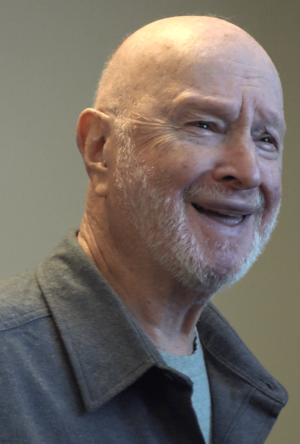
Feiffer was married three times and had three children. His daughter Halley Feiffer is an actress and playwright. Another daughter, Kate Feiffer, is also an author and playwright.
His third marriage was in September 2016 to freelance writer JZ Holden. The ceremony combined Jewish and Buddhist traditions. Holden is the author of Illusion of Memory. Feiffer lived in upstate New York with his wife and their two cats. He passed away on January 17, 2025, at his home in Richfield Springs, New York, at the age of 95.
Awards and Recognition
- 1961: Received a George Polk Award for his cartoons.
- 1961: His film Munro won an Academy Award for animated short.
- 1969 and 1970: Won Obie Award and Outer Circle Critics Award for his plays.
- 1986: Awarded the Pulitzer Prize for political cartoons.
- 1989: Received an Inkpot Award.
- 1995: Elected to the American Academy of Arts and Letters.
- 2004: Inducted into the Comic Book Hall of Fame.
- 2004: Received the National Cartoonists Society's Milton Caniff Lifetime Achievement Award.
- 2006: Received the Creativity Foundation's Laureate.
- 2010: Won a Lifetime Achievement Award from the Writers Guild of America.
- 2023: Won a Lifetime Achievement Award from the Dramatists Guild of America.
Selected Works
- Sick, Sick, Sick (1958)
- Passionella and Other Stories (1959)
- The Explainers (1960)
- Boy, Girl, Boy, Girl (1961)
- The Feiffer Album (1962)
- Hold Me! (1962)
- Harry: The Rat with..., a Novel (1963)
- Feiffer's Album (1963)
- The Unexpurgated Memoirs of Bernard Mergendeiler (1964)
- The Great Comic Book Heroes (1965)
- Feiffer on Civil Rights (1966)
- The Penguin Feiffer (1966)
- Feiffer's Marriage Manual (1967)
- Pictures at a Prosecution (1971)
- Feiffer on Nixon, the Cartoon Presidency (1974)
- Knock Knock (1976)
- Tantrum (1979)
- Jules Feiffer's America: From Eisenhower to Reagan (1982)
- Marriage Is an Invasion of Privacy and Other Dangerous Views (1984)
- Feiffer's Children (1986)
- Ronald Reagan in Movie America (1988)
- The Man in the Ceiling (1993)
- A Barrel of Laughs, a Vale of Tears (1995)
- Meanwhile— (1997)
- I Lost My Bear (1998)
- Bark, George (1999)
- Backing into Forward: A Memoir (2010)
- Smart George (2020)
- Amazing Grapes (2024)
See also
 In Spanish: Jules Feiffer para niños
In Spanish: Jules Feiffer para niños
 | Janet Taylor Pickett |
 | Synthia Saint James |
 | Howardena Pindell |
 | Faith Ringgold |


